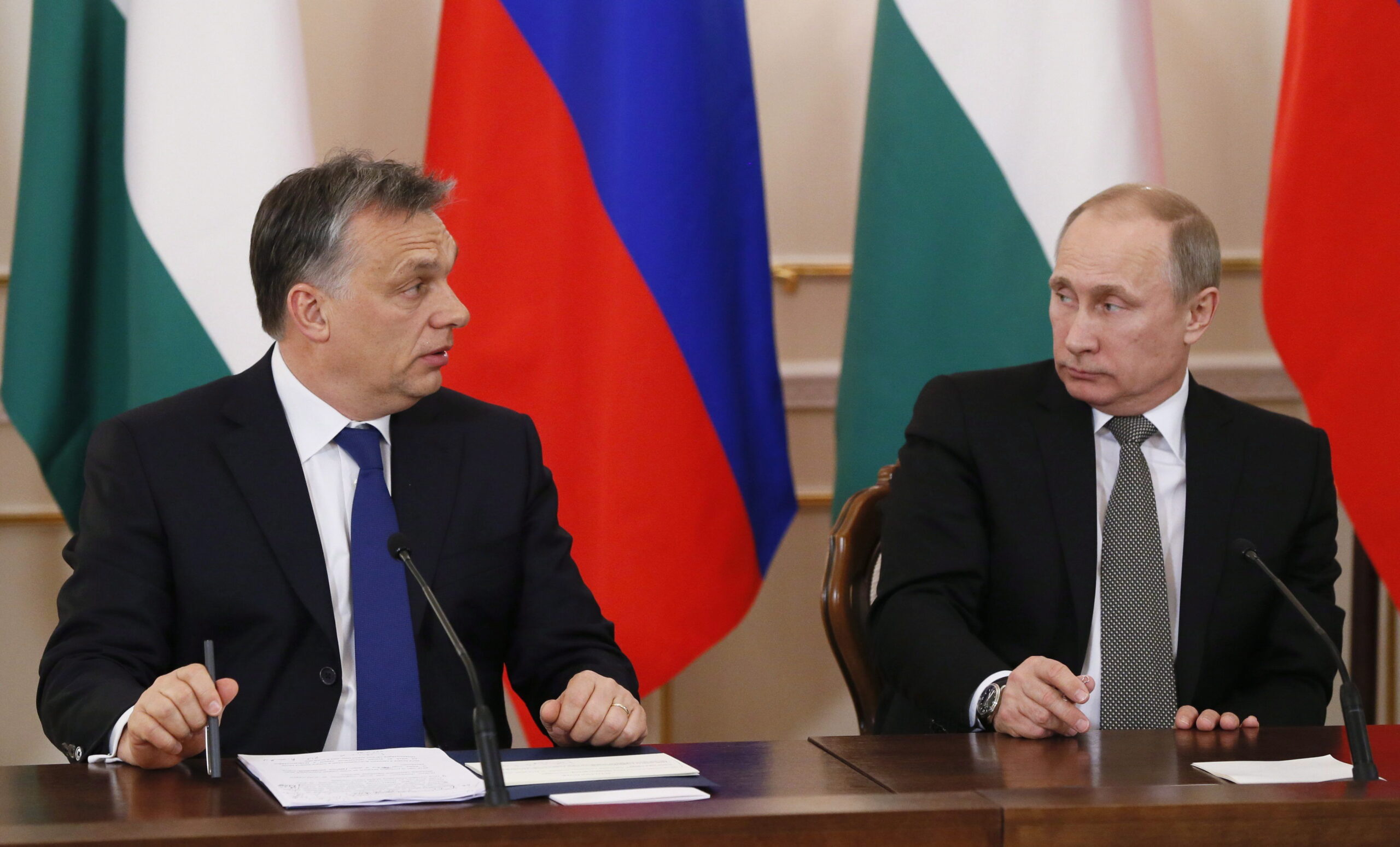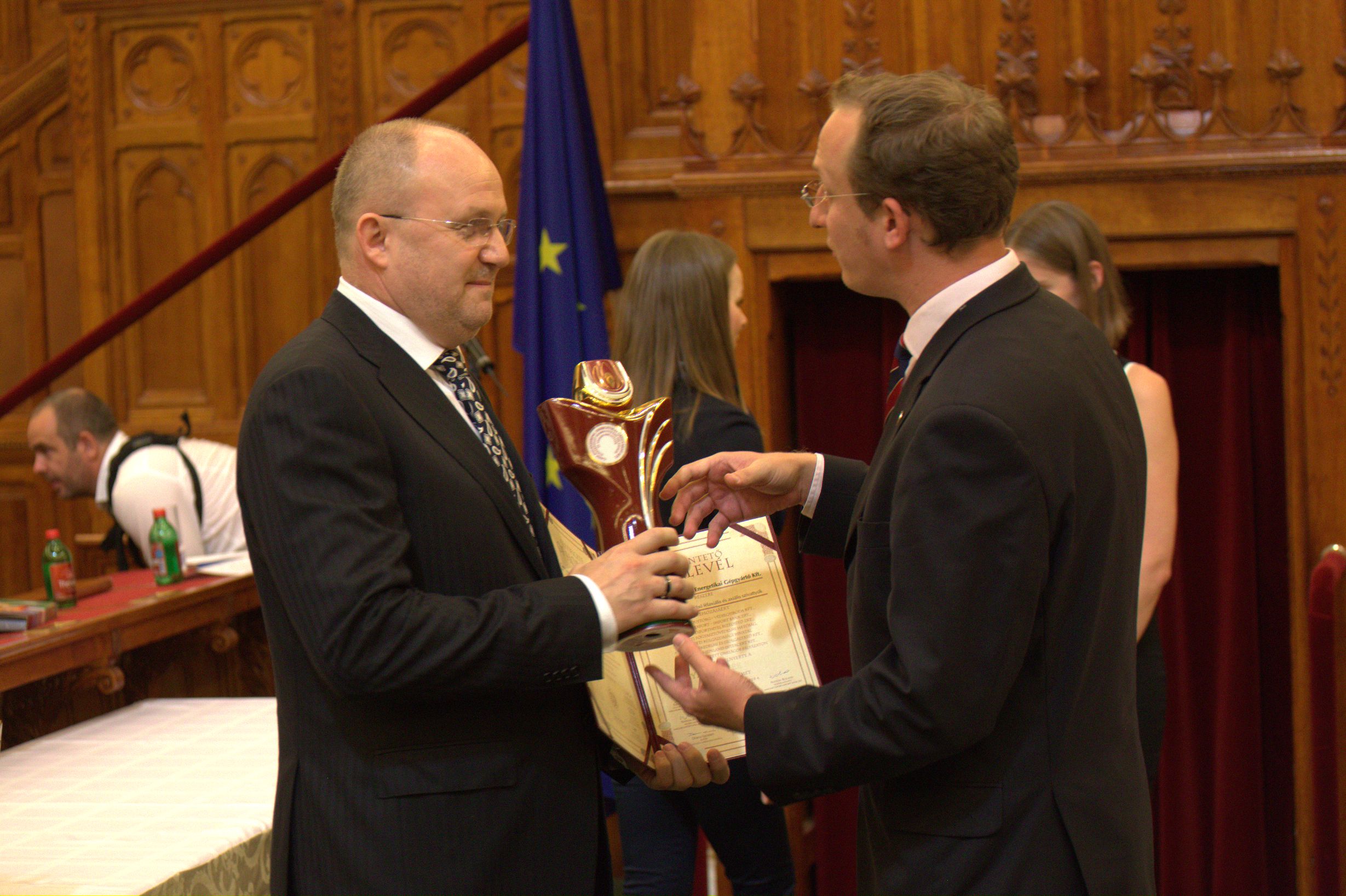How Russians forced out Hungarians from a major company of Hungary’s new nuclear project

When at an event last year János Süli, the minister in charge of the expansion of Hungary’s nuclear plant talked about the project’s potential Hungarian participants, he singled out one company. It was Ganz Engineering and Energetics Machinery Ltd, which was introduced by Süli as a firm that can play an important role in the construction known as Paks 2, for which the Hungarian government hired the Russian nuclear company Rosatom under a secretly negotiated deal four years ago.
There was, however, a problem with Süli’s example. Although Ganz EEM had indeed been partly owned by Hungarians, by the time of the minister’s speech, they had been forced out of the company. Their place was taken by Rosatom.
Direkt36’s investigation shows that the takeover was the result of a years-long conflict. Ganz EEM was established as a Russian-Hungarian joint venture between Rosatom and Hungarian industrial company Ganz nearly 10 years ago, but the two sides did not get along well with each other from the very beginning. Their relationship deteriorated so much that they ended up in court. In the end, the Hungarians proved to be weaker and they sold their shares to Rosatom in 2016.
This development further diminished the chances of reaching the goal of Hungarian companies carrying out at least 40 percent of the nuclear plant’s construction. Russian President Vladimir Putin talked about this objective at the 2014 announcement of the 12.5 billion euro deal. Since then, it has become increasingly clear that Hungarian-owned companies will hardly have such a share in the project. Sources from the construction industry acknowledge that Hungarian companies simply do not have the necessary experience and qualifications.
Ganz EEM was among the few exceptions. Its managing director, Attila Szitár-Csanádi, is known as one of Rosatom’s most trusted people in Hungary. He has had good relations in Russia for years and is said to have played an important role in a controversial decision of the University of Debrecen, a partner of Ganz EEM, which announced last year that it would give an honorary citizenship to president Putin.
The university, in response to Direkt36’s questions, did not deny that Szitár-Csanádi was involved in their decision. The Ganz EEM, the Hungarian government, and Rosatom did not respond to our inquiries.
The Russian partnership
Ganz Engineering and Energetics Machinery Ltd was set up in 2008 when Ganz, one of Hungary’s oldest industrial companies, teamed up with a company from the Rosatom group. At first, it looked like both sides found what they had been looking for and that this would be a fruitful partnership.
Nuclear energy has long been part of Ganz’s profile as the company was supplying machines for the existing Hungarian nuclear plant operating in the town called Paks and for other plants in the former socialist countries in Eastern Europe. Ganz wanted to maintain this line of business, but they knew that the only way to do that was if they could participate in the construction of new plants. Rosatom, still dominant in this region, seemed to be a natural partner for Ganz EEM.
At the same time, the Russians were also looking for partners in Hungary. In the 2000s, Hungarian decision makers were already contemplating the expansion of the existing nuclear plant and the Russians did not want to stay out of it.
“This was important geopolitically as well, and for the Russians the first step is always to get a key position in the industry,” said a source familiar with Rosatom’s activities in Hungary. Ganz was practically the only company that had the proper background for such a partnership.
The joint venture was created when the Russians bought shares in an old Ganz company, which was then renamed to Ganz EEM. The Russians wanted majority ownership that would allow them to pick the management as well. Eventually, Rosatom (through one of its companies, Atomenergomas) became a 51 percent owner of the company. The rest of the shares were in the hands Ganz Machinery Works Ltd.
Fighting over money
It took only seven months for the first conflicts to emerge, company records show.
The Russian side did not deliver the promised orders for Ganz EEM, which kept the 2009 revenues of the company below the mutually set goals. The Hungarian side also claimed they were the main financers of the company, although previously the two parties had agreed on mutual responsibilities. Therefore, at a members’ meeting in 2009, Ganz Machinery Works requested compensation from Rosatom. The Russians accepted the concerns of the Hungarians, and, according to a source familiar with Ganz EEM’s inner workings, paid what the Hungarians asked for. The source added, however, that this clash was just a prelude for much more serious conflicts.
Later, the Hungarians raised concerns over the Russian managing director. At a members’ meeting they pointed out that the company accumulated significant debt (in 2010, Ganz EEM lost 540 million forints (1.7 million euros)). The Hungarians wanted a change in the management. The Russians accepted this as well and at they agreed to dismiss the managing director at the same meeting.
Soon afterwards, in August 2011, a new director, Attila Szitár-Csanádi, was appointed. Szitár-Csanádi, who was born in the former Soviet Union (in a territory that is now part of Ukraine and known for having high number of ethnic Hungarians), has a close relationship with Rosatom’s Russian management, according to people who know him.

Left Szitár-Csanádi Attila
Szitár-Csanádi also made it clear that when it comes to the joint venture, he is firmly with the Russian side. At a members’ meeting he suggested that it is better if he gets his instructions directly from Russia because then it will be easier for him to carry out what the majority owner wants.
Those who know Szitár-Csanádi say that Rosatom is relying on him in the Paks 2 project even more than on the Russian nuclear company’s official representatives in Hungary. A source familiar with the project’s details said that Szitár-Csanádi’s job is to informally coordinate with those Hungarian companies that want to participate in the construction.
The essence of Paks 2
After the first conflicts in Ganz EEM, for a while it seemed that things would be going smoothly again. In August 2012, a Rosatom delegation visited the company, and a few days later the Russian nuclear energy company announced that “it wishes to rely more actively on Ganz EEM in the future.” Afterwards, the company published several statements listing the business deals it won thanks to Rosatom. For example, it delivered pumps for the Rostov nuclear power plant and other devices for another nuclear power plant near St. Petersburg. In its statements, the company highlighted that “the closed Russian nuclear energy market opened up for Ganz.”
The involvement of Ganz EEM in the Paks expansion came up more and more frequently. In his press conference in December 2012, Szitár-Csanádi said that the company can be part of this project “through its world-class devices.” After the signature of the Hungarian-Russian agreement about Paks 2 in January 2014, the Russian newspaper Kommersant wrote that Ganz EEM could be one of Rosatom’s Hungarian suppliers .
At the time of the signature of a strategic cooperation deal between the Hungarian government and Ganz Holding in the summer of 2014, foreign secretary Péter Szijjártó praised the company’s successes within the so-called Eastern Opening. Zoltan Fitos, CEO of Ganz Holding stated that “we could become the essence of the announced 40% domestic supply for Paks2.”
However, the company’s Hungarian-Russian relations did not improve in the background. The official records from the company’s May 2014 meeting detailed on several pages the discontent of the Hungarian owner. The Hungarian party objected that Rosatom had withdrawn from a project, which negatively affected Ganz EEM.
The Hungarians also complained that Rosatom did not guarantee continuous deals for the company, even though this would have been the Russian obligation. The Russian party claimed that Rosatom rules had changed in the meantime, and then it voted down the Hungarian owner.
According to the Hungarians,Rosatom’s behaviour was the reason for the company’s losses, and this led to a serious conflict between the two parties at the end of 2014. Company records show that the Russians wanted the company to take a 10-million-euro bank loan, which was approved in December 2014 despite the disagreement of the Hungarians. As a reaction, the Hungarian party sued the Russians, who then launched a counter-lawsuit against the Hungarian owner.
The first instance Hungarian court ruled in favour of the Hungarian party. According to the ruling, the decision about the loan should have been taken with qualified majority, which required the approval of the Hungarian owner. “The Russians were not used to anyone contradicting them,” said a Hungarian source familiar with the case.
Company sale is the only solution
Despite the court victory, the conflict had become unsustainable and, as a result, Hungarians sold their 49% company share to Rosatom in 2016. The Russians paid 4.5 million euros, which on paper, appeared as a profitable deal for the Hungarian party. However, this profit could have been even higher had Ganz EEM really played a significant role in the Paks 2 project.
A source familiar with the businesses of the company said that Ganz Holding realized that the company could only win serious business deals if the Russians were allowed to make decisions without any negotiations. “They let the child go to avoid tearing it apart,” he said.
Even after press reports about Rosatom becoming a 100% owner of Ganz EEM, governmental officials continued to refer to the company as a possible Hungarian supplier of Paks 2. It is true though that in one of his parliamentary responses, János Süli stated that those suppliers can be considered Hungarian that are active in Hungary, pay taxes in Hungary, contribute to the Hungarian GDP and employ Hungarian workforce, and not those that have Hungarian owners.
Putin’s award
Two independent sources familiar with Szitár-Csanádi and the Paks expansion told Direkt36 that the CEO also played a role in Vladimir Putin receiving an honorary title from the Debrecen University. We contacted Szitár-Csanádi but he did not answer our questions.
The Debrecen University signed a cooperation agreement with Ganz EEM in February 2017. During the official signature, Szitár-Csanádi said that “the aging of experts is a great concern for the company and therefore we would like to attract the younger generation to bring in new technology.”
Half a year later in August 2017, the university leadership decided about the honorary title of Russian President Putin. They justified the decision by saying that both the Hungarian government and the Russian Federation aims to give the Debrecen University a significant role in Paks 2 investment. The decision was timed for Putin’s visit to Budapest in August. Several professors and students of the university protested against the award.
The award has not been handed over to Putin yet, he might receive it during his other upcoming visit to Hungary. The Debrecen University told Direkt36 that this will happen as soon as Putin can come. It did not react to our questions about Szitár-Csanádi’s role in the decision.
For the Hungarian company data we used the services of Opten.


